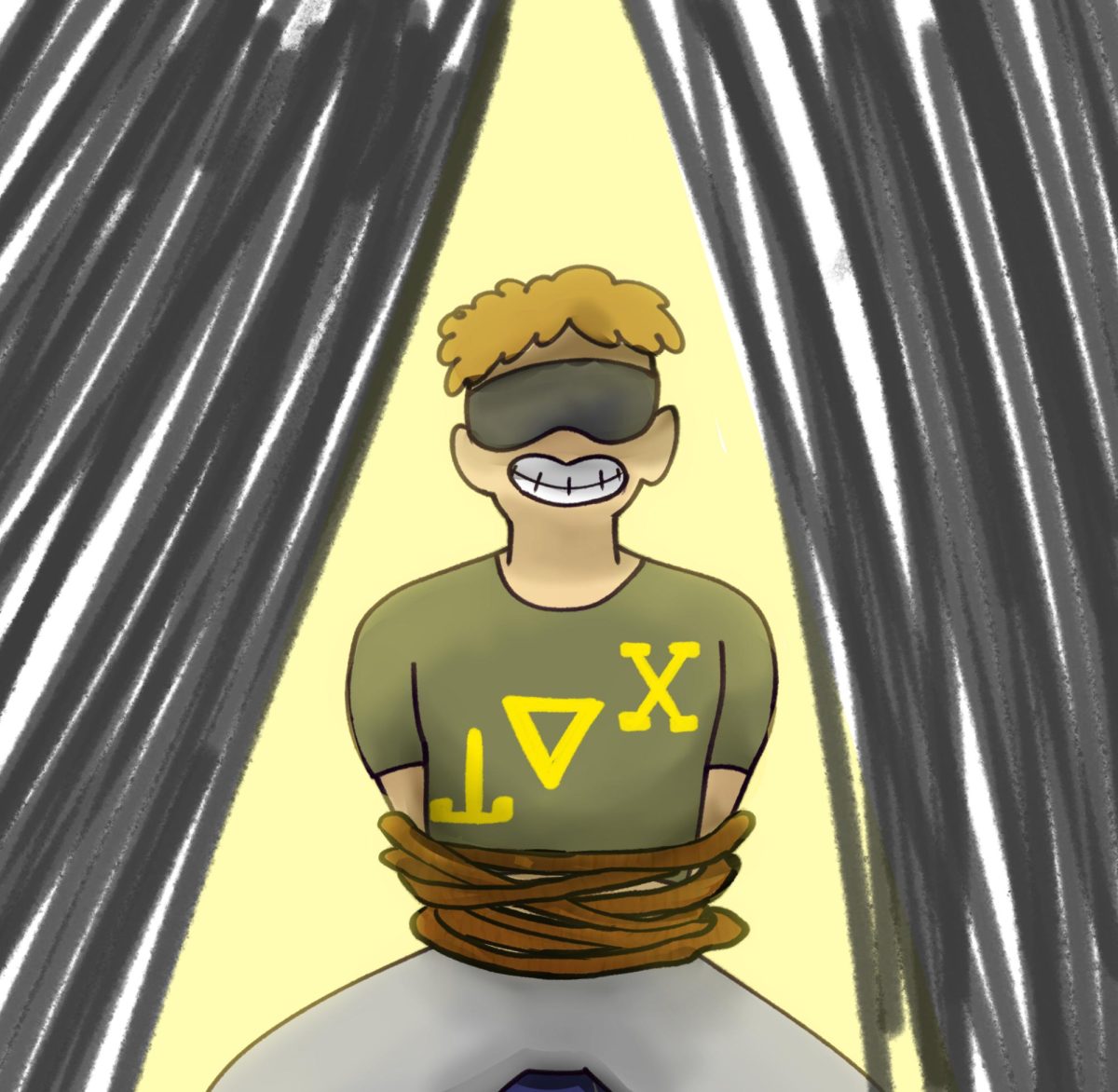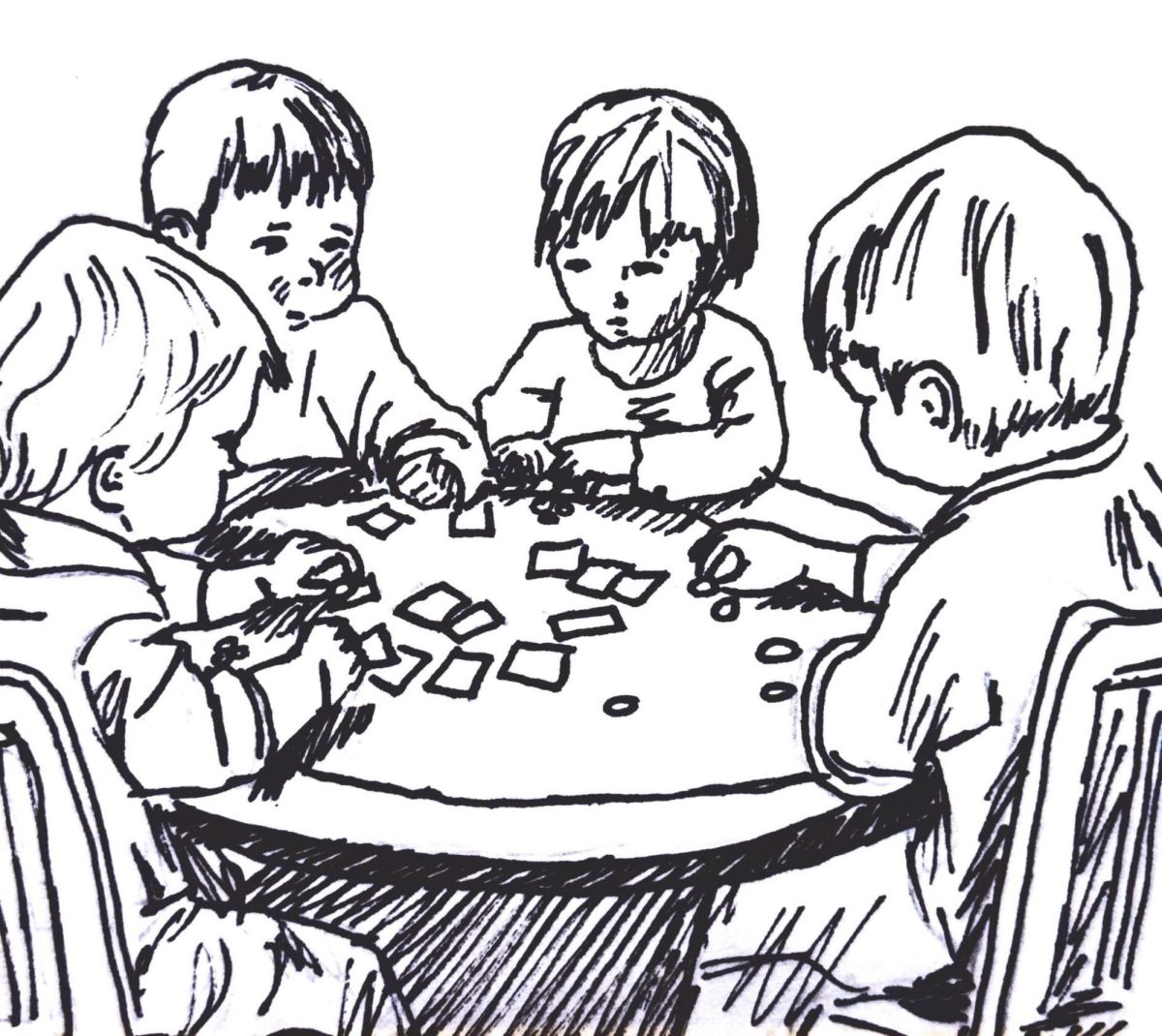This is a jointly-written article from two writers who have, shall we say, slightly differing political leanings. One of us used to be president of Tigers for Liberty and espouses traditionalist conservative views. The other sees American capitalism as predicated on intrinsically unjust principles and perpetuates both economic disparity and moral degradation.
Despite our disagreement in politics, we are in full agreement in a far more important area. We both place our Catholic faith first in our lives and do our best to conform to our Catholic faith — never conforming our faith to our own views.
That last bit makes it difficult to determine who to vote for. The general public presents our elections as a binary: one candidate is seen as the No Good Very Bad One, and the other, The Only True American. But this dichotomy falls short of providing anyone with a morally cohesive way to judge candidates independent of party lines. Our church does provide us with this, but as it turns out, there are few, if any, candidates who Catholics can vote for without reservation.
The church identifies some acts as “intrinsically evil” in her moral theology. These are actions which are never acceptable, regardless of context. In the American political sphere, many are what you might expect: abortion, racism, torture and treating workers as mere means to an end. But these are not the only issues which Catholics are obligated to consider when voting — there are also evils that are not intrinsic, positive goods that ought to be brought about and the complication of determining which policies will best bring about these goals.
The United States bishops warn against making no distinctions between various evils — as surely some are more serious than others — but also against using the opposition of one evil to justify the continuation of others. So, for instance, while Catholics must always oppose abortion in the private and public spheres, we are also required to oppose unjust immigration laws and support just healthcare and responsible climate policies.
Both of us agree that the goals of ensuring access to quality healthcare, a sustainable environment, protection for the unborn, just compensation for workers, just treatment of workers and just treatment of immigrants are issues of paramount importance that cannot be ignored.
There is, however, a wide range of legitimate debate to be had about the best way of bringing about each of these goals. The church has condemned both socialism and classical liberalism, but there is no morally authoritative guidance on the optimal corporate tax rates. Our own prudential judgement has to take some role. Yet still worse, even accounting for differences in prudential judgement, we have also found that neither party seems to espouse all of these goals and decry all the intrinsically evil acts. To vote at all means to compromise on matters of the utmost importance.
This makes voting as a Catholic rather difficult. We cannot rest comfortably behind a party line. Nor do we always agree with each other about which policies or private practices constitute a violation of “just compensation for workers” in the first place. Thankfully, we can at least look to the church to guide our thought in what is and is not moral in the first place, and from there engage in fruitful dialogue about the best way to bring those moral goods about.
As we mentioned at the beginning, we both strive to form our consciences to the teaching of the church. Part of that is the church’s social teaching. If you want to learn more about Catholic social teaching and why Catholics seem politically homeless, join us on Nov. 13 at 7:30 p.m. in the Tehuacana Room for a discussion with John Burke of the Department of Political Science about Catholic social teaching and the obligations we have to those around us.







A catholic for separation of church and state • Dec 3, 2018 at 10:46 am
Well good thing there’s Catholics for Choice then. Because we acknowledge that the stance on abortion and birth control is mostly form the opinions of a group of men and doesn’t actually have much basis in the Bible. FYI I’m a goddamn catholic.
Read the Bible • Dec 6, 2018 at 1:56 pm
“Tho shall not kill”
Read it Better Bitch • Dec 11, 2018 at 4:05 pm
Can’t kill something that isn’t alive
Study High School Biology • Dec 14, 2018 at 12:38 pm
(1) The irony of your statement “Read it Better Bitch.” Doesn’t sound very Catholic or Biblical to me.
(2) Even a zygote by every measure and scientific standard is considered “living.” A zygote is a genetically distinct human organism with a human genome which is comprised of cells, responds to stimuli, grows, carries out functions like digestion and waste production, etc.
You are free to make philosophical conjectures that a zygote is not “alive.” You can craft your own definition of “life” in such a way that justifies your views on abortion. You can continue to believe that there can be humans (as defined by the science of a human genome) which are not people. But you should be aware that your philosophy is not scientifically based, and not rooted in the Scripture, Church tradition, or any of the ancient philosophies from which the Church borrows. Your philosophy here on what is “living” or “nonliving” belongs to you and the pro-choice ideology, but it derives zero authority from the life sciences or the religion you follow.
Please do not pretend that this is somehow a “reform” the Church needs to make. The Church is explicit on the topic of abortion. It is intrinsic evil. Either you are a Catholic who believes abortion is a grave injustice, or you are a Catholic who is bad at being Catholic.